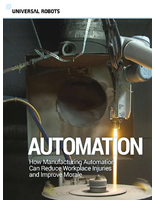Proposed Cuts to EPA Appropriations undermine Tier 3 rules.
Share:
Press Release Summary:
House Committee on Appropriations released its FY 2014 Interior and Environment Appropriations, which has since been approved by Subcommittee on Interior, Environment, and Related Agencies. Among other things, this bill would block EPA from spending funds to finalize and enforce rules to Control of Air Pollution From Motor Vehicles: Tier 3 Motor Vehicle Emission and Fuel Standards. BIO opposes this provision, citing unnecessary regulatory uncertainty and negative impacts on human health.
Original Press Release:
Proposed Cuts to EPA Appropriations Undermine Tier 3 Rules
WASHINGTON --The House Committee on Appropriations yesterday released, and today the Subcommittee on Interior, Environment, and Related Agencies approved, its FY 2014 Interior and Environment Appropriations bill that would, among other things, block EPA from spending funds to finalize and enforce rules to Control of Air Pollution From Motor Vehicles: Tier 3 Motor Vehicle Emission and Fuel Standards. The Biotechnology Industry Organization (BIO) opposes this provision in the legislation, since it would create unnecessary regulatory uncertainty for advanced biofuel companies and negatively impact human health.
“Reducing the amount of sulfur currently contained in gasoline would reduce the costs of healthcare for Americans by at least $8 billion a year by 2030, and that is a goal worth pursuing. EPA must be allowed to finalize the rule.”
Brent Erickson, Executive Vice President of BIO’s Industrial & Environmental Section, said, “In its Tier 3 proposal, the EPA is pursuing an effective, broad-based approach to addressing the impacts of motor vehicles on air quality, public health, and the quality of American’s lives. The rule would harmonize EPA’s regulation of emissions from transportation with other regulations, such as CAFE standards and the Renewable Fuel Standard, which would reduce regulatory uncertainty and the costs of compliance with these rules.
“Reducing the amount of sulfur currently contained in gasoline would reduce the costs of healthcare for Americans by at least $8 billion a year by 2030, and that is a goal worth pursuing. EPA must be allowed to finalize the rule.”
About BIO
BIO represents more than 1,100 biotechnology companies, academic institutions, state biotechnology centers and related organizations across the United States and in more than 30 other nations. BIO members are involved in the research and development of innovative healthcare, agricultural, industrial and environmental biotechnology products. BIO also produces the BIO International Convention, the world’s largest gathering of the biotechnology industry, along with industry-leading investor and partnering meetings held around the world. BIO produces BIOtechNOW, an online portal and monthly newsletter chronicling “innovations transforming our world.” Subscribe to BIOtechNOW.
Upcoming BIO Events
BIO Investor Forum
October 8-9, 2013
San Francisco, CA
BIO IPCC Conference
November 6-8, 2013
Washington, DC
BIO Convention in China
November 11-13, 2013
Beijing, China
Pacific Rim Summit on Industrial Biotechnology & Bioenergy
December 8-11, 2013
San Diego, CA
BIO CEO & Investor Conference
February 10 – 11, 2014
New York, NY
Contacts
Biotechnology Industry Organization (BIO)
Paul Winters, 202-962-9237
Web: www.bio.org
Blog: www.biotech-now.org
Twitter: @IAmBiotech




